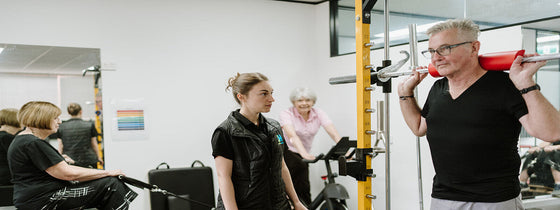What is pain? What have we learned about pain in 21st century? Medical scientists have made incredible discoveries while learning about pain drivers in the last 15 years and they’ve shared it with our clinicians, so we can work together to create a more comfortable life.
Let get scientific to understand the definition of pain. The International Association for the Study of Pain (yes, that’s a real association who are doing very powerful work!) define pain as 'an unpleasant sensation and emotional experience that links to tissue damage'. This is a seemingly simple definition for something so complex, but just knowing this scientific definition opens our thoughts to inputs to pain which could be at play, outside of the ‘damaged structure = pain’ mentality.
Acute, chronic and cancer pain are the three categories the umbrella term of ‘pain’. Acute pain, as its name suggests, lasts for a short amount of pain and often occurs following trauma, surgery and/or other specific conditions. Acute pain acts as a warning to the body to seek help and, generally, improves as the body heals. Chronic pain sufferers experience pain beyond what is expected while healing from an instance of trauma, surgery and/or other conditions. Although chronic pain can be a symptom of another disease, it can also be a disease in its own right. Chronic pain and stress are experienced by approximately 20% of the population and this number continues to rise in Australia. Lastly, cancer pain occurs in patients with early stage through to advanced stages of the disease, but it can also be a side-effect of treatment for cancer survivors.
Well-trained, and well-read, clinicians know pain is not just a physical sensation. Pain is individualised to each person, because it is influenced by attitudes, beliefs, personality and social factors, and can affect emotional and mental wellbeing. Therefore, although two people may have the same pain condition, their experience of living with pain can be vastly different—if you live with pain, you would definitely be aware of this!
Any pain situation can make a person angry, frustrated or upset - but it does, generally, serve an amazing purpose. Pain allows the body to react and prevent further tissue damage. It’s an alarm system, just like your home security alarm, and allows you to make safety calls – like, move your hand from the flame because it’s burning!
The NOI group is an organisation of scientists and clinicians working solely in the pain science world, and they are asking people to consider 5 conceptual things about pain. These concepts can be challenging for some people because they may challenge our attitudes, beliefs, personality and social factors, and can affect emotional and mental wellbeing. The NOI Group, alongside our medical science world, have found that building knowledge about pain actually creates pain relief for most. Taking back the power from our pain is incredibly freeing and has proved to be really successful in helping people move, function and live through, and, ultimately, resolve their pain.
What are these 5 conceptual nuggets of pain science?
The Optimal Health Lab team of ,physiotherapy podiatry, dietetics and myotherapy are experts who all excel in their respective professions, but they are bound together by neuroscience principles about pain. With specific professional development opportunities, our team know how the nervous system is a remarkable, mobile, complex, plastic and changeable organ, and this impacts on both acute and chronic injuries and disease. Let our experienced clinical team guide you, or your family member, to understand and reduce pain. Please reach out to any of team (via email or private phone call) to help us understand how we can best help you and your pain situation.

OHL is integrating a new athletic screening assessment into its practice to further enhance our community's sporting ability. This screening assessment combines range of motion, strength profiling, force deck analysis, and subjective training status to give athletes a comprehensive performance snapshot. By establishing a baseline and identifying key areas for improvement, we can tailor your training to enhance performance, provide insight on key metrics, and stay resilient throughout the season. Whether you're preparing for preseason, managing midseason demands, or simply aiming to train smarter, this assessment delivers the data-driven insights you need.

If you're experiencing back or neck pain with neurological signs and symptoms, a thorough neurological examination is crucial for accurate assessment and effective treatment. In this Optimal Tip learn more about what we mean by completing a neurological exam!

Squats, deadlifts, and calf raises are key movement patterns that should be part of every strength and conditioning program—regardless of age and activity level. These functional movements support joint health, improve posture and balance, and reduce the risk of injury while building strength where it matters most.